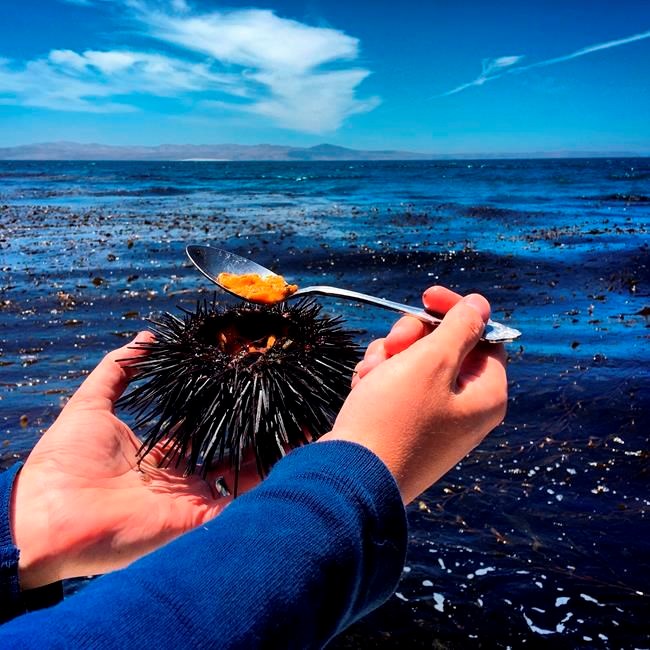NEW YORK — They are briny and sweet — once you get past those formidable spines. Biting into one has been likened to kissing a mermaid. Now they are ready for their close-up.
Sea urchins — which contain the prized meat the Japanese call uni — are the subject of a new documentary “The Delicacy,” which explores the complex relationship between humans and these porcupines of the sea.
“I look at this film as a nature documentary about people,” says director Jason Wise, who spent seven years creating his 70-minute ode to the scourge of all recreational swimmers' feet.
“The Delicacy” features chefs who prize the sea urchin for its delicate, luxurious flesh and the fishermen who catch it by hand. It takes fascinating detours into the world of abalone fishing and the urchin's deadly rival — sea otters.
“I always find my
This time, Wise dove with the sea urchin divers off the coast of California, but initially faced some difficulties convincing them to be filmed. “They don’t stand to gain much from being on camera,” he said.
One diver who helped is Stephanie Mutz, the rare full-time female sea urchin diver in California. She also has a master’s degree in tropical marine biology, and saw the film as a chance to educate viewers about sustainability and her specific fishery.
Mutz and her fellow divers don wetsuits and prowl the murky depths, plucking individual urchins from the bottom with a gloved hand and a pick, avoiding ocean currents, disorientation and sharks. It’s an ancient skill and
“People have had a disconnect of where their food comes from and their relationships to the harvesters,” she said. “I've had conversations with customers where they didn't know that we went into the water and picked them one by one.”
Americans commonly
Mutz grills them in the shell, a trick she learned from a Vietnamese customer. She cracks open the urchin, cleans it out, adds the meat back into the cavity with an egg, and then grills or smokes it. Once finished, she adds the mixture to rice, with some cilantro.
Wise, who wrote the film with his wife, Christina, has always been a fan of sea urchin meat, which is actually the urchins' reproductive organs. The first thing he did on his honeymoon in Greece was look for the spiny beasts.
When he asked Mutz to come and help record the feature commentary for the documentary, he also asked her to bring sea urchins to munch on. “All this has done has made me appreciate sea urchin even more,” he said.
Wise decided against using digital video to capture his film, choosing instead 16 mm film, which gives “The Delicacy” a lushness evident in glorious shots of divers among the dense, swaying kelp forests, “I wanted it to look like the nature documentaries I grew up with that made me want to make films,” he said.
The movie is the first major feature film available on SOMM TV, a subscription video-on-demand streaming platform dedicated to wine, food and travel.
The documentary arrives at a time when the nation is grappling with a pandemic that has closed restaurants and triggered some people to hoard staples, but Mutz says demand for sea urchin is still strong.
“I don’t see it subsiding anytime soon. I thought that with this pandemic and everyone hoarding toilet paper, they would lose interest,” she said. “We’re a delicacy. We’re not a staple item. But we can’t catch enough right now.”
Mutz, who with a partner has built a retail arm to sell her urchin directly, has a theory for why customers crave the delicacy these days: “I think they want some kind of treat or normality in their lives at the moment.”
___
Mark Kennedy is at http://twitter.com/KennedyTwits
Mark Kennedy, The Associated Press



